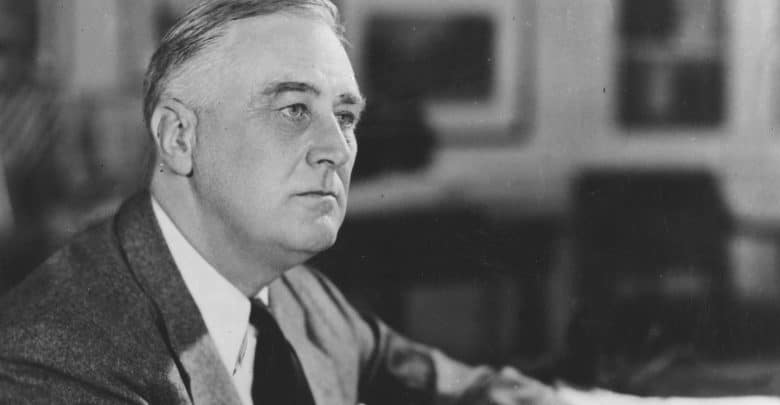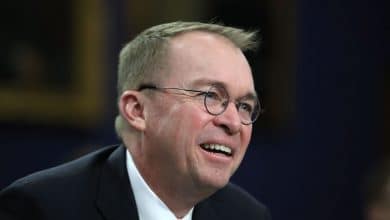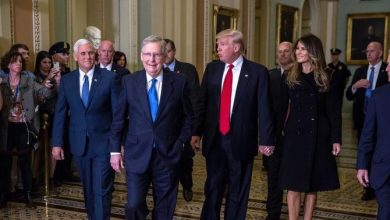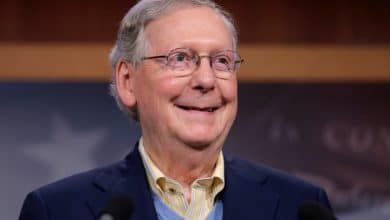MedicareSocial Security
Medicare For All: The Next Step In The New Deal
FDR would be shocked that universal health care as a right hadn’t become the law of the land decades ago!

[dropcap]I[/dropcap]f President Franklin D. Roosevelt were alive today, he would instantly recognize the Medicare for All Act of 2017 as a crucial next step in the work he began more than three-quarters of a century ago. He would applaud the legislation, which Senator Bernie Sanders (I-VT) and his co-sponsors will introduce this Wednesday, but would be shocked that universal health care as a right hadn’t become the law of the land decades ago!
Roosevelt and his fellow architects of Social Security thought universal, government-sponsored health insurance was right around the corner. In a 1938 speech, Molly Dewson, a member of the three-person Social Security Board (predecessor to today’s Social Security Commissioner) reported:
Adequate health protection [in the form of adequate medical care and paid sick leave, is]…already on the horizon … [C]hild labor, minimum wage, [and] health insurance … will be [enacted], maybe not today or tomorrow but sometime in the not unforeseeable future.
Roosevelt had originally planned to include national health insurance in his Social Security legislation, but ultimately decided that it was asking for too much at once. Revealingly, when he signed the Social Security Act into law, he explained:
“This law … represents a cornerstone in a structure which is being built but is by no means complete.”
Shortly after Social Security was enacted, his administration laid the groundwork for national health insurance by conducting health surveys, convening a conference on the topic, and discussing strategy internally.
The goal of universal, government-sponsored health insurance was never far from Roosevelt’s mind. World War II derailed progress on the issue, but FDR continued to advocate for it. In his budget message to Congress delivered just one month after the nation’s entry into the war, Roosevelt proposed that Social Security be expanded to include hospital insurance, as well as temporary and permanent disability benefits.
Though the country was still emerging from the Great Depression and drastically increasing spending on the military, FDR told Congress that guaranteed, universal health care was unquestionably affordable:
“Our resources are such that even with the projected huge war expenditures we can maintain a standard of living more than adequate to support the health and productivity of our people.”
Distracted by the war effort, Congress did not heed his request, but Roosevelt was undeterred. He continued to promote the expansion of Social Security, including the addition of universal, government-sponsored health insurance. Indeed, in his Jan. 6, 1945 State of the Union Address, as the end of the war was in sight, he indicated he was ready for action:
“In considering the State of the Union, the war and the peace that is to follow are naturally uppermost in the minds of all of us … An expanded social security program, and adequate health and education programs, must play essential roles in a program designed to support individual productivity and mass purchasing power. I shall communicate further with the Congress on these subjects at a later date.”
Tragically, Roosevelt died just three months later, before he was able to fulfill his commitment. His successor, President Harry Truman, picked up the mantle. But Truman met fierce opposition from Republican leaders, who denounced Truman’s health care plan as “socialist.” With the failure of progress under Democratic President Truman and the election of Republican President Dwight D. Eisenhower, those pushing for national health insurance decided that they needed to change their strategy.
They decided to go for an incremental approach. The decision led to the successful passage of Medicare, which was, from the start, intended as a first step towards universal health care. One of Medicare’s key architects, the late Robert M. Ball (the longest serving Social Security Commissioner in the history of the program), explained the thinking:
“[A]ll of us who developed Medicare and fought for it … had been advocates of universal national health insurance. We all saw insurance for the elderly as a fallback position, which we advocated solely because it seemed to have the best chance politically … [W]e expected Medicare to be a first step toward universal national health insurance, perhaps with ‘Kiddicare’ as another step.”
Consistent with this incremental approach, Medicare was extended to people with disabilities in 1972. The hardest steps in the march towards Medicare for all were completed with that expansion: The program had been successfully started and the most expensive parts of the population, seniors and people with disabilities, had been covered. Coverage of children, who have the lowest average health care costs, and working age Americans, who are less costly than the Medicare population, should have been easy.
But immediately after Medicare’s expansion came Watergate and, with it, increased distrust of government. Watergate was followed by the elections of two presidents, Jimmy Carter and Ronald Reagan, who both ran as outsiders, demonizing government. Indeed, President Ronald Reagan famously claimed, in his first inaugural address, “government is not the solution … government is the problem.” That statement was transformative.
Expansion of Medicare to children or other demographic groups disappeared from the public agenda. But the need for universal high-quality health care, efficiently provided, was still there.
Reagan’s successors — conservative Republicans and centrist Democrats — failed to challenge his assertion about government. Rather than push for further expansion of Medicare, they looked to market-based, tax-favored, private sector schemes. For those who couldn’t afford private health insurance, they advocated, at most, subsidies, tax credits, and means-tested programs operated at the state level (e.g., Medicaid and CHIP).
Those are the approaches that have dominated since 1972, culminating in the enactment of the Affordable Care Act, despite the obvious advantages of simply expanding Medicare. Worse, the misnamed Medicare Modernization Act of 2003 and other legislative changes have privatized parts of Medicare and introduced elements of means-testing.
Market-based provision of health care, using for-profit corporations, is vastly inferior to universal, government-sponsored health insurance, which is the most effective and efficient way to cover everyone. Insurance is most cost-efficient and reliable when the risks can be spread across as broad a population as possible.
Only the national government has the power and ability to establish a nationwide, universal risk pool, with mandatory participation, making adverse selection impossible. And when the federal government administers the insurance, overhead is minimized. Instead of high-paid CEOs, hardworking civil servants are in charge. And other costs, like advertising and marketing, are unnecessary. It can provide health care less expensively and more efficiently for everyone.
For these reasons, every other industrialized country provides universal coverage, spends less as a percentage of GDP, and produces better health outcomes. But we don’t have to look to other countries to see the advantages.
Given the greater efficiency of government-sponsored wage and health insurance, it is not surprising that Social Security and Medicare are so efficient. More than 99 cents of every dollar Social Security spends is paid in benefits. Less than a penny goes to administration. These are much lower administrative costs than can be found under Social Security’s private sector counterparts.
Similarly, Medicare covers seniors and people with disabilities, people who, on average, have the worst health and the most expensive medical conditions, requiring the largest numbers of doctor and hospital visits. Accordingly, they have the largest number of health care claims. Yet, Medicare is significantly more efficient than private health insurance.
According to the most recent Trustees Report, Medicare spends just 1.4 cents of every dollar on administrative costs. The rest is paid in benefits. In contrast to administrative costs of just 1.4 percent, the administrative costs of private health insurance average around 11 to 17 percent. Indeed, health insurance sponsored by very small firms or purchased by individuals can run as high as 30 percent.
As a stark illustration of the greater efficiency and effectiveness of Medicare, a proposal floated a few years ago to raise Medicare’s initial age of eligibility from 65 to 67 would have resulted in increased health care costs for the nation as a whole of $5.7 billion a year and increased premium costs for both Medicare and all other health insurance of about 3 percent. Just as shrinking Medicare’s coverage increases costs, expanding coverage would reduce our nation’s overall health care costs.
Fortunately, visionary leaders in Congress, including Senators Bernie Sanders and Elizabeth Warren, Congressman John Conyers, and others, never bought Reagan’s assertion about government. They understand that there are some undertakings government does better than the private sector. They know that wage and health insurance, in the form of Social Security and Medicare, is one of those things. Consequently, they are all advocates of expanding Social Security and Medicare.
Over the last few decades, the nation has detoured from its understanding that government can and should be a force for good in our lives. The current hurricane season is a strong reminder of the importance of government. So are Social Security and Medicare. Both programs are extremely popular. Polling shows that those who have Medicare are more satisfied with their coverage than those with private health insurance.
Extending Medicare’s coverage to everyone will only make the program stronger, more successful, and more popular. The Medicare for All Act of 2017 improves benefits for both current and future Medicare beneficiaries. And that is likely just the start of improvements, if Medicare for All becomes law. With all of us covered by the same group insurance plan, we will have enormous leverage. And, since that insurance plan — Medicare — is sponsored by the federal government, we will have direct recourse at the ballot box if our collective interests are not well served.
Medicare has stood the test of time. At long last, we should expand it to everyone. Achieving Medicare for All won’t be easy. The drug and insurance companies, as well as the rest of the for-profit medical industry, will fight it with everything they can muster. But an energized and mobilized electorate can win.
The Medicare for All Act of 2017 is gaining co-sponsors daily, including several potential 2020 presidential candidates. Every Senate Democrat should co-sponsor this visionary proposal and campaign on it vigorously.
In his speech accepting the Democratic Presidential nomination in 1932, FDR proclaimed:
“Let us now and here highly resolve to resume the country’s interrupted march along the path of real progress, of real justice, of real equality for all of our citizens, great and small … I pledge you, I pledge myself, to a new deal for the American people.”
Senator Sanders and the co-sponsors of the Medicare for All Act of 2017 are answering FDR’s call. It is long past time to once again resume the march towards progress, justice, and equality for all and take the next step in the New Deal by ensuring that every American has the right to quality health care.








